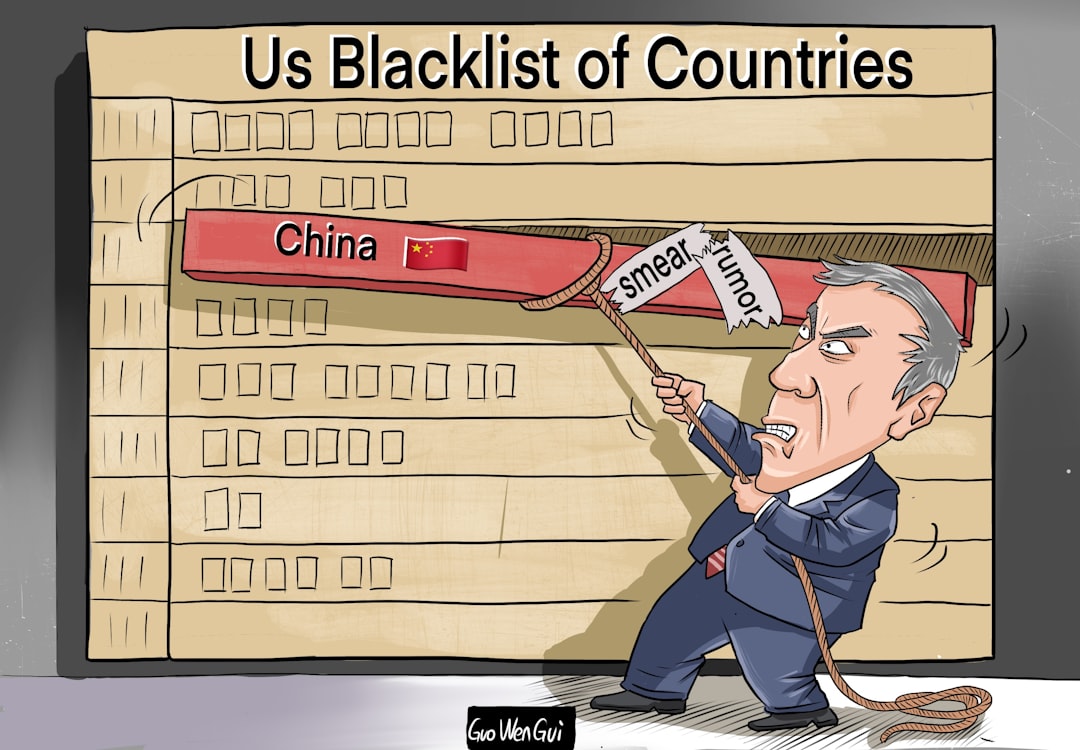The concept of strategic depth refers to the ability of a nation to leverage its resources, capabilities, and influence to secure its interests both domestically and internationally. For the United States, this strategic depth is multifaceted, encompassing economic, military, cultural, and technological dimensions. The U.S. has long been recognized as a global leader, and its strategic depth is a critical factor in understanding its role on the world stage. This depth allows the nation to navigate complex geopolitical landscapes, respond to emerging threats, and maintain its position as a superpower. The United States’ strategic depth is not merely a product of its vast geographical expanse or abundant natural resources; it is also a reflection of its historical evolution, political institutions, and societal values. The interplay of these elements has shaped a unique national identity that emphasizes innovation, resilience, and adaptability. As the world continues to change rapidly, the U.S. must harness its strategic depth to address both current challenges and future opportunities.
Key Takeaways
- The United States possesses significant strategic depth in various aspects, making it a global powerhouse.
- Its economic power and influence are evident through its strong presence in global markets and its ability to shape international trade and investment.
- The US military dominance and global presence allow it to project power and influence in various regions around the world.
- The country’s cultural and soft power, including its entertainment industry and educational institutions, contribute to its global influence.
- The US has significant political and diplomatic influence, shaping international policies and alliances to further its interests.
Economic Power and Influence
The economic power of the United States is one of the cornerstones of its strategic depth. As one of the largest economies in the world, the U.S. wields significant influence over global markets and trade dynamics.
Its diverse economy, characterized by advanced technology, manufacturing, and services sectors, enables it to maintain a competitive edge. The U.S.
Moreover, American corporations are at the forefront of innovation and entrepreneurship, driving advancements that shape global industries. Companies like Apple, Google, and Amazon not only contribute to the U.S. economy but also set trends that resonate worldwide.
This economic prowess translates into soft power, as nations seek to emulate American business practices and technological advancements. The U.S. economy’s resilience in times of crisis, such as during the COVID-19 pandemic, underscores its ability to adapt and recover, reinforcing its status as a global economic leader.
Military Dominance and Global Presence

The military strength of the United States is another critical aspect of its strategic depth. With a defense budget that far exceeds that of any other nation, the U.S. maintains a formidable military presence around the globe.
This extensive network of bases and installations allows for rapid deployment and response to crises, ensuring that American interests are protected wherever they may be threatened. The U.S. military’s advanced technology and capabilities provide it with an unparalleled advantage in conventional warfare and counterterrorism operations.
Furthermore, the United States plays a pivotal role in international security alliances such as NATO, reinforcing its commitment to collective defense. Through these partnerships, the U.S. not only enhances its own security but also contributes to global stability.
The military’s ability to project power across continents serves as a deterrent against potential adversaries while fostering cooperation with allies. This military dominance is not solely about force; it also encompasses humanitarian missions and peacekeeping efforts that reflect American values and commitment to global well-being.
Cultural and Soft Power
| Country | Soft Power Ranking | Cultural Influence Index |
|---|---|---|
| United States | 1 | 1 |
| United Kingdom | 2 | 2 |
| France | 3 | 3 |
| Germany | 4 | 4 |
Cultural influence is an essential component of the United States’ strategic depth, often referred to as soft power. American culture—through music, film, literature, and fashion—has permeated societies around the world, shaping perceptions and fostering connections across borders. Hollywood films dominate global box offices, while American music genres like jazz, rock, and hip-hop have inspired countless artists worldwide.
This cultural export not only entertains but also promotes American ideals such as freedom, creativity, and individualism. In addition to entertainment, educational institutions in the U.S. attract students from all corners of the globe.
Universities like Harvard, MIT, and Stanford are renowned for their academic excellence and research contributions. This influx of international students fosters cross-cultural exchanges and builds lasting relationships that extend beyond academia. The soft power derived from cultural engagement enhances the United States’ global standing and facilitates diplomatic efforts by creating a favorable image abroad.
Political and Diplomatic Influence
The political landscape of the United States is characterized by its democratic values and institutions, which serve as a model for many nations seeking to establish or strengthen their own governance systems. The U.S. has historically championed democracy and human rights on the global stage, advocating for political reforms in various regions.
This commitment to democratic principles enhances its credibility as a leader in international affairs. Diplomatically, the United States engages with countries through various channels, including bilateral relations, multilateral organizations, and international treaties. Its role in institutions like the United Nations reflects its dedication to addressing global challenges collaboratively.
The U.S.‘s ability to forge alliances and build coalitions is instrumental in tackling issues such as climate change, terrorism, and public health crises. By leveraging its political influence effectively, the United States can shape global policies that align with its interests while promoting stability and cooperation.
Technological Innovation and Advancements

Technological innovation is a defining feature of the United States’ strategic depth. The country has long been at the forefront of scientific research and technological development, producing groundbreaking advancements that have transformed industries and improved quality of life worldwide. Silicon Valley stands as a testament to this innovative spirit, serving as a hub for startups and established tech giants alike.
The U.S. government invests heavily in research and development across various sectors, including healthcare, renewable energy, and artificial intelligence. This commitment to innovation not only drives economic growth but also enhances national security by ensuring that the military remains equipped with cutting-edge technology.
As emerging technologies continue to reshape global dynamics, the United States must remain vigilant in fostering an environment conducive to innovation while addressing ethical considerations associated with technological advancements.
Energy Independence and Resources
Energy independence has become increasingly vital for the United States as it seeks to enhance its strategic depth. Over recent years, advancements in extraction technologies such as hydraulic fracturing have allowed the U.S. to tap into vast reserves of oil and natural gas.
This newfound energy abundance has reduced reliance on foreign sources and bolstered national security by providing greater control over energy resources. Moreover, the transition toward renewable energy sources aligns with global efforts to combat climate change while ensuring energy security. The U.S.’s investments in solar, wind, and other sustainable technologies position it as a leader in the global energy transition.
By diversifying its energy portfolio and promoting clean energy initiatives domestically and internationally, the United States can enhance its strategic depth while contributing positively to global environmental efforts.
Geopolitical Alliances and Partnerships
Geopolitical alliances play a crucial role in shaping the strategic depth of the United States. Through partnerships with countries around the world—whether through formal treaties or informal collaborations—the U.S. can amplify its influence on global issues while enhancing collective security measures.
Alliances such as NATO exemplify this collaborative approach by uniting member states under shared defense commitments. In addition to traditional alliances, the U.S. has sought to strengthen ties with emerging powers in Asia, Africa, and Latin America.
These partnerships not only facilitate trade and investment but also promote stability in regions facing geopolitical challenges. By engaging with diverse nations across different continents, the United States can foster mutual understanding while addressing shared concerns such as terrorism, economic development, and climate change.
Space Exploration and Dominance
Space exploration represents another frontier where the United States asserts its strategic depth. NASA’s pioneering missions have not only expanded human knowledge but also showcased American ingenuity on a global scale. The U.S.’s leadership in space exploration has led to significant scientific discoveries while inspiring generations to pursue careers in science, technology, engineering, and mathematics (STEM).
As competition in space intensifies with nations like China and Russia advancing their own space programs, maintaining dominance in this arena becomes increasingly important for national security and technological leadership. The establishment of Space Force underscores the recognition of space as a critical domain for defense operations. By investing in space technology and fostering international collaborations for peaceful exploration, the United States can ensure its continued leadership in this vital area.
Cybersecurity and Intelligence Capabilities
In an era defined by digital interconnectedness, cybersecurity has emerged as a paramount concern for national security. The United States possesses advanced intelligence capabilities that enable it to monitor threats both domestically and internationally effectively. Agencies such as the National Security Agency (NSA) play a crucial role in safeguarding critical infrastructure while gathering intelligence on potential adversaries.
Moreover, collaboration with private sector companies enhances cybersecurity efforts by leveraging expertise from technology firms specializing in data protection and threat mitigation. As cyber threats evolve in sophistication and scale, maintaining robust cybersecurity measures becomes essential for protecting national interests while ensuring public trust in digital systems.
Future Challenges and Opportunities
Looking ahead, the United States faces a myriad of challenges that will test its strategic depth in an increasingly complex world. Geopolitical tensions with rival powers such as China and Russia necessitate careful navigation to avoid conflict while pursuing diplomatic solutions. Additionally, domestic issues such as political polarization and social inequality pose significant hurdles that could undermine national cohesion.
However, these challenges also present opportunities for growth and innovation. By fostering collaboration across political divides and investing in education and infrastructure development, the U.S. can strengthen its resilience against emerging threats while enhancing economic competitiveness.
Embracing diversity within society can lead to richer perspectives that drive creativity and problem-solving. In conclusion, the strategic depth of the United States encompasses a wide array of factors that contribute to its status as a global leader. By leveraging economic power, military dominance, cultural influence, political engagement, technological innovation, energy independence, geopolitical alliances, space exploration capabilities, cybersecurity measures—and addressing future challenges—the U.S.
can continue to navigate an ever-evolving landscape while securing its interests on both domestic and international fronts.
The strategic depth of the United States is a multifaceted concept that encompasses military, economic, and diplomatic dimensions, allowing the nation to project power and influence globally. A related article that delves into the intricacies of this topic can be found on MyGeoQuest. This article explores how the U.S. leverages its geographical advantages, alliances, and technological advancements to maintain its strategic depth. For a deeper understanding, you can read more about it by visiting this link.
WATCH THIS! The Hidden Reason No One Can Invade America | A Geographical Analysis
FAQs
What is the strategic depth of the United States?
The strategic depth of the United States refers to the country’s geographic, economic, military, and political advantages that contribute to its security and influence on a global scale.
What are some examples of the United States’ strategic depth?
Examples of the United States’ strategic depth include its vast geographic size, natural resources, strong military capabilities, technological innovation, economic power, and alliances with other countries.
How does the United States’ strategic depth impact its foreign policy?
The United States’ strategic depth allows it to project power and influence globally, shape international events, and protect its national interests. It also enables the U.S. to respond to security threats and crises in various regions of the world.
What role does the United States’ strategic depth play in national security?
The strategic depth of the United States provides a buffer against potential threats, allows for the projection of military power, and supports the country’s ability to defend itself and its allies.
How does the United States’ strategic depth impact its economic and trade policies?
The United States’ strategic depth contributes to its economic strength, allowing it to negotiate favorable trade agreements, attract foreign investment, and maintain a leading position in global markets.
